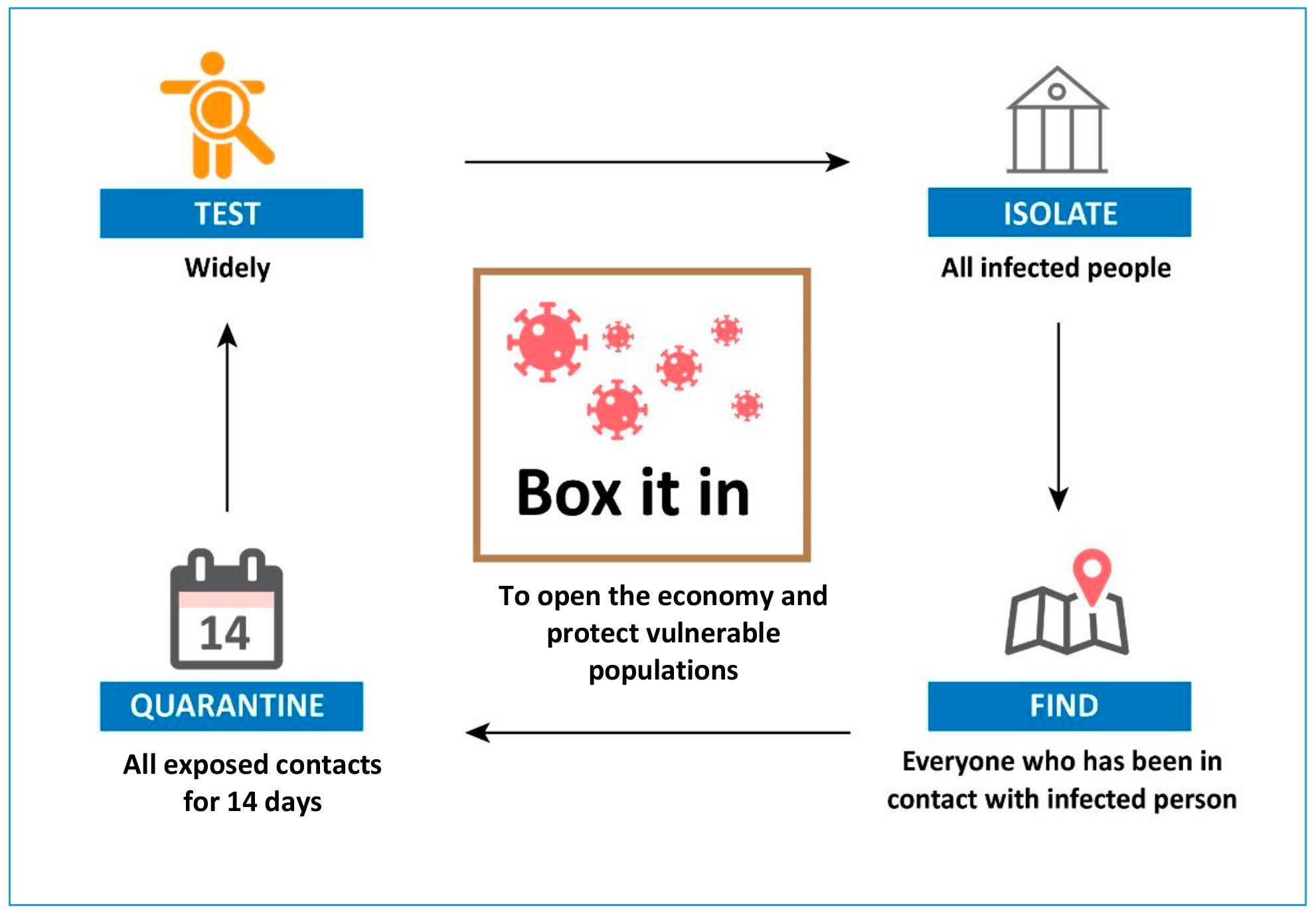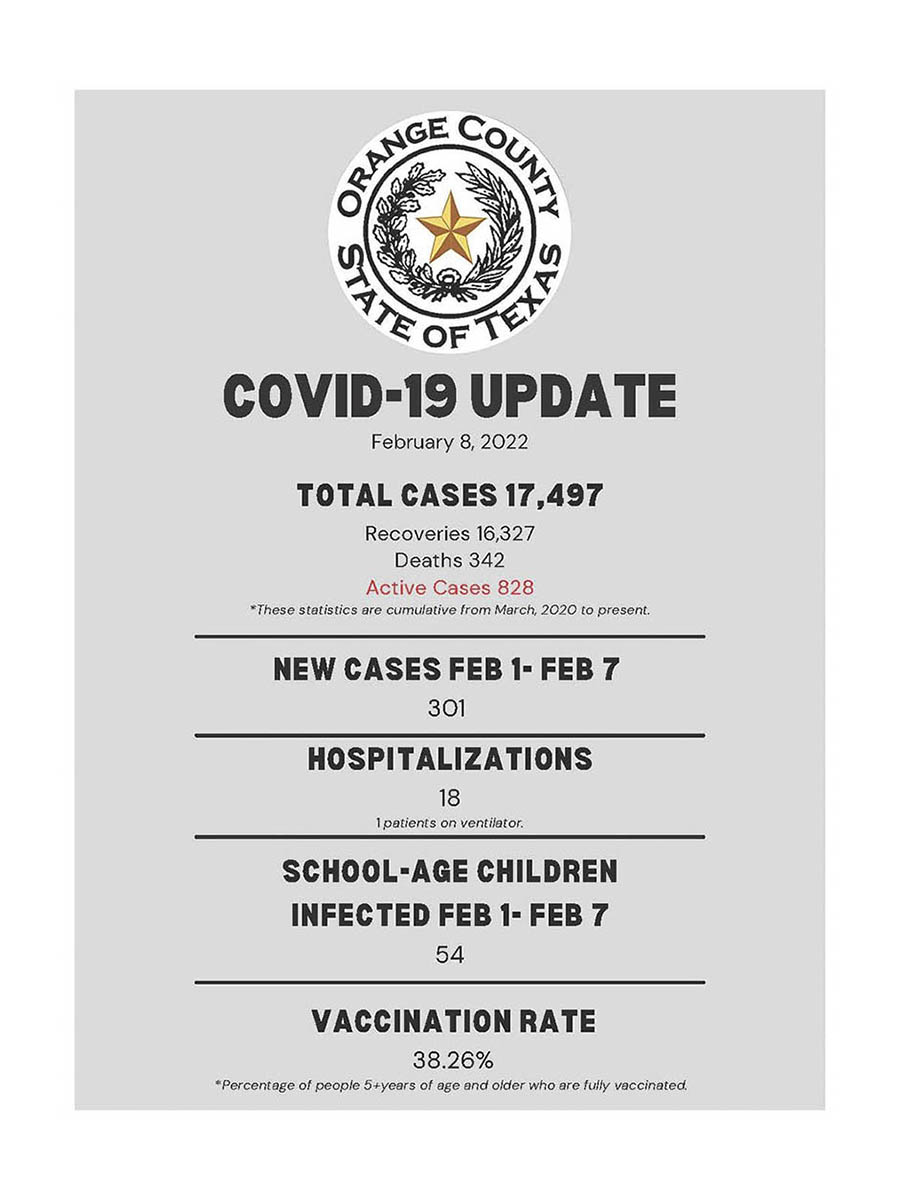Governor Gregg Abbott reopens Texas in phases
Published 12:13 am Wednesday, April 29, 2020

- Adapted from Fraser, Michael, et al. A Coordinated, National Approach to Scaling Public Health Capacity for Contact Tracing and Disease Investigation. Association of State and Territorial Health Officials, 2020.
|
Getting your Trinity Audio player ready...
|
By Dawn Burleigh
Texas Governor Gregg Abbott announced Phase I of reopening Texas starting Friday, May 1, 2020.
An executive order declaring a public health emergency in the state was set to expire on April 30, 2020.
“I will let it expire as scheduled. It’s done it’s course,” Abbott said as he announced Phase I of reopening Texas starting Friday.
He used China, Singapore and Hong Kong as examples of why Texas needed to reopen slowly and not all at once.
China is reporting new outbreaks and Singapore is experiencing a second wave of COVID-19.
“This strategic approach to opening the state of Texas prioritizes the health and safety of our communities and follows the guidelines laid out by our team of medical experts,” Abbott said. “Now more than ever, Texans must remain committed to safe distancing practices that reduce the spread of COVID-19, and we must continue to rely on doctors and data to provide us with the safest strategies to restore Texans’ livelihoods. We must also focus on protecting the most vulnerable Texans from exposure to COVID-19. If we remain focused on protecting the lives of our fellow Texans, we can continue to open the Lone Star State.”
On Friday, all retail stores, restaurants, and movie theaters will be able to reopen while maintaining 25% occupancy.
Within shopping malls, the food-court dining areas, play areas, and interactive displays and settings must remain closed.
“Museums and libraries will be able to reopen under the same 25% occupancy,” Abbott said. “Hands on exhibits will not be able to open yet.”
Churches and places of worship remain open. Outdoor sports are allowed to resume so long as no more than four participants are playing together at one time. Certain social distancing practices must also be followed. Local government operations, including county and municipal government operations relating to permitting, recordation, and document-filing services, may reopen as determined by the local government.
At this time, hair salons, gyms, and bars will not be able to open at this time. Those establishments are scheduled for Phase II which is planned for mid May.
Orange County Judge John Gothia issued an amendment before the governor’s press conference stating Orange County would follow the state’s orders.
It reads:
Therefore, based upon the guidance of Governor Abbott’s orders; this order supersedes all of my previous Emergency Orders and Addenda and they are amended to provide:
- All current orders of the Governor shall control the conduct of the citizens of Orange County and a copy of all orders of the Governor are included (reference link below) and incorporated herein fully for guidance; and
- All persons who test positive for the coronavirus are ordered to follow the directives of the Local Health Authority regarding self-isolation; and
- The penalty for violating any portion of these Emergency Orders shall be punishable by a fine that does not exceed $1,000.00.
Orange County’s order shall took effect at 1 p.m., Monday, April 27, 2020, and shall remain in effect until amended or terminated.
Phase I of Abbott’s plan will begin Friday May 1 and continue until at least May 18. The Governor will continue to evaluate next steps for the state.
The Governor’s Report to Open Texas also outlines a long-term comprehensive mitigation plan for nursing homes in Texas. Eight recommendations have been developed by HHSC to help mitigate the further spread of COVID-19 and decrease the risk of infection in these facilities. A summary of the recommendations are:
- Quantify the extent of infection immediately
- Establish a comprehensive mitigation plan
- Re-evaluate current COVID-19 positive facilities
- Appropriate isolation and placement of COVID-19 patients
- Implement enhanced access controls
- Enhance control of staff access
- Effective notifications
- Continue containment efforts
During the press conference, the Governor also announced a new statewide testing and contact tracing program. Developed and implemented by DSHS, this program will help identify individuals who have contracted COVID-19 and those who may need to quarantine or be tested due to potential exposure. This phased implementation will allow Texans to box in the virus and slow, or even stop, further spread. Phase I of the tracing program has been completed, and Phase II begins today. Phase III begins May 11.
Governor Abbott today also relaxed certain restrictions related to health care professionals and issued amended requirements related to hospital capacity including every hospital must reserve at least 15% capacity for treatment of COVID-19 patients.
Additionally, the Governor eliminated the mandatory 14-day quarantine period for individuals traveling from Louisiana.
The mandated 14-day quarantine for travelers from the following areas remains in place: California; Connecticut; New York; New Jersey; Washington; Atlanta, Georgia; Chicago, Illinois; Detroit, Michigan, and Miami, Florida.
Abbott also said Texas has the third-most recoveries in the U.S. and that the number of people who have recovered from COVID-19 would soon exceed active cases.
He also announced plans to build a team of 4,000 contact tracers in May. Hellerstedt said the federal government has also committed to “solving some of the supply chain problems that have been limiting some of our ability to test.” He said when those scarcities ease, Texas will be able to ramp up testing.
Abbott said he understands the frustration of hair salon and barbershop owners.
“They have explored strategies, including having just one customer come in at a time,” Abbott said. “The goal is just to find safe ways in which people can work in close contact with customers while preventing the spread of COVID-19. We think we have some potential solutions, let us continue to work on it.”
Abbott added that his report recommends that everyone wears face coverings but that no jurisdiction can impose a penalty for not doing so.
State executive order supersedes any local orders, including those that impose fines for not wearing a mask.



